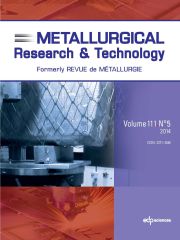Article contents
How to assess the availability of resources for newtechnologies? Case study: Lithium a strategic metalfor emerging technologies
Published online by Cambridge University Press: 08 December 2009
Abstract
The development of new technologies is often connected withthe use of non-renewable resources. In recent years a qualitativeshift in the demand of bulk metals (e.g. Fe, Al, Cu) to more scarcemetals (e.g. Te, Ga, Re) is recognisable. Novel technologiesand products rely more and more on very specific metals whichare indispensable for their function. Although such metals aregenerally used in low concentrations in products, the demandhas raised significantly due to mass production. Some of them areof high importance due to their strategic relevance to emerginginnovative technologies. Lithium so far has gained relatively little attention, although itfulfills the main criteria of a strategically relevant metal. In recentyears, however, recognition of lithium increased as a result of thegrowing market for lithium-based rechargeable batteries in mobileinformation/communication consumer products and in electricvehicles. Both areas of demand led to a skyrocketed use of lithiumin recent years. Other technologies in the future like fusion power generation willraise lithium consumption at an accelerated rate. It is thereforenecessary to determine the availability of lithium in the mediumand long term in order to prevent technology failures and to ensurea more sustainable development. The authors will provide a wellfoundedknowledge base, outline the availability of worldwidereserves and resources, and describe the structure of present andfuture demands for lithium.
- Type
- Research Article
- Information
- Copyright
- © La Revue de Métallurgie, 2009
- 11
- Cited by


